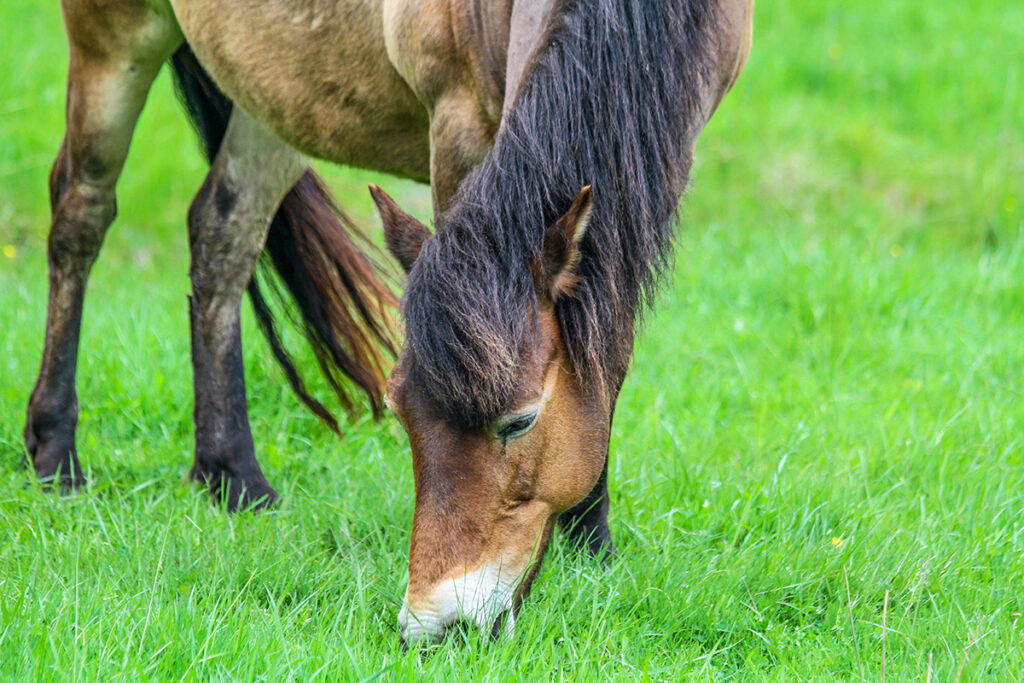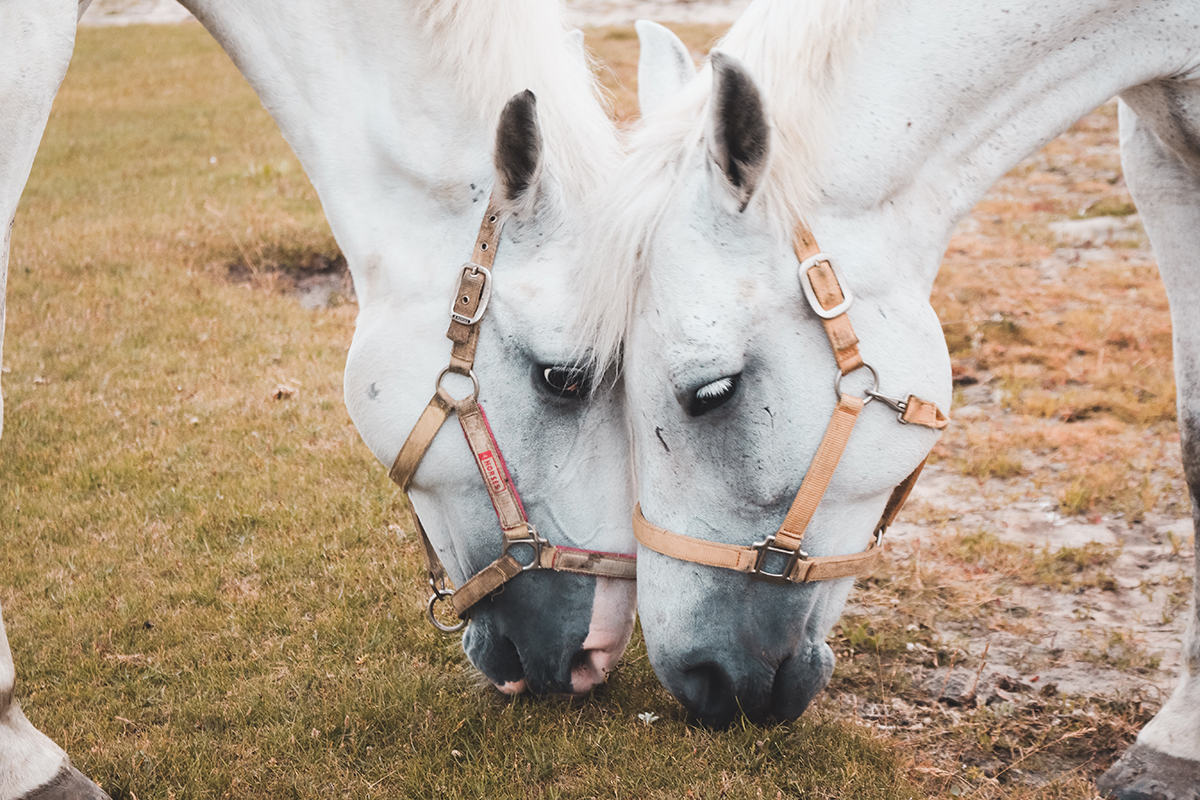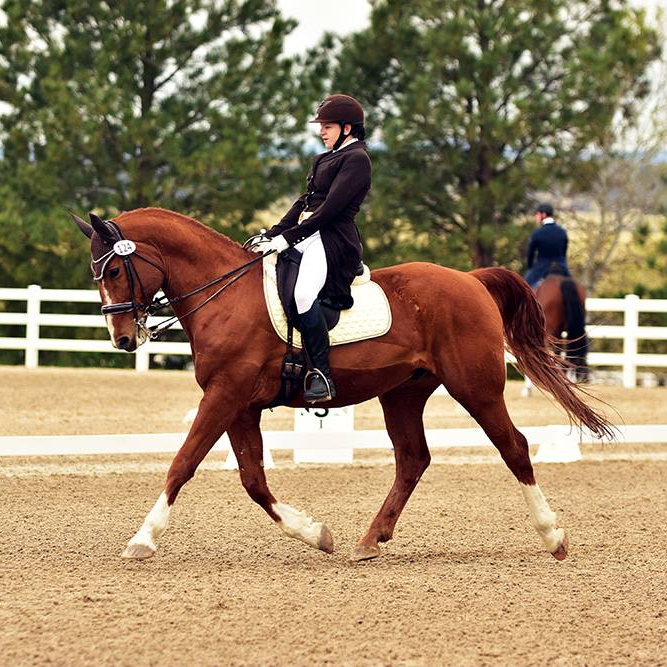
One of the most critical aspects of horse care is providing them with proper nutrition. Among the various components of a horse’s diet, forage stands out as a cornerstone. In this article, we will delve into the reasons why horses require all-day forage and how it contributes to their overall well-being. Please note there are many ways you can provide all-day forage, such as slow feeders, if you are concerned about the rate at which your horse eats the hay or potential hay waste.
Mimicking Natural Behavior: Horses are natural grazers. In the wild, they spend a significant portion of their day grazing on grasses and plants. This behavior is hardwired into their biology, as their digestive system is designed to process small amounts of food frequently. By providing horses access to forage all day, we are aligning with their natural feeding patterns, reducing stress, and promoting mental and physical health.
Digestive Physiology: The equine digestive system is complex and sensitive. Horses have a relatively small stomach and a large hindgut (the cecum, large colon, small colon, and rectum), where the bulk of digestion occurs. Forage, such as grass and hay, contains high levels of fiber that require prolonged fermentation to break down effectively. Continuous grazing ensures a steady supply of fibrous material to the digestive tract, preventing issues like colic, ulcers, and other digestive disorders. Horses should not go more than 4 hours without access to forage, per the Animal Husbandries and Animal Welfare Research Group.
Preventing Gastric Ulcers: Gastric ulcers are a common health concern among horses, particularly those exposed to stress and irregular feeding patterns. Allowing horses to graze on forage throughout the day can reduce the risk of developing ulcers. The constant production of saliva during chewing acts as a natural buffer against stomach acid, protecting the delicate stomach lining. Ulcers can be costly to diagnose and treat, so it is best to avoid them if possible.
Weight Management: Horses, like humans, can struggle with weight management. All-day access to forage encourages horses to eat at a more moderate pace, reducing the likelihood of overeating or gorging on meals. This controlled consumption aids in maintaining a healthy body weight and can help prevent obesity-related issues such as laminitis and insulin resistance.
Mental Stimulation: Aside from physical benefits, continuous grazing provides horses with mental stimulation. Boredom and frustration can lead to undesirable behaviors, such as cribbing, wood chewing, and weaving. Access to forage encourages horses to exhibit natural behaviors, such as grazing and exploring their environment, keeping their minds engaged and reducing stress.
Social Interaction: Horses are social animals that thrive in the company of others. Allowing them to graze together promotes social interaction and reduces feelings of isolation. This can contribute to a more balanced and contented equine community.
Mealtime Manners: If horses have forage available 24/7, or at least most of the day, they are less likely to develop bad habits surrounding feeding time. This can be due to the fact that they are less panicked and hungry when you come with their feed. If you feed grain or a concentrated feed, they may still become excited over that at meal time, but they will be less time sensitive to when you show up with it because they are not actually hungry.
In the quest for optimal equine care, providing horses with all-day forage is a fundamental component. By accommodating their natural behavior, supporting their digestive physiology, and preventing various health concerns, we create an environment where horses can thrive both physically and mentally. Whether in a domestic setting or the wild, access to continuous grazing reflects our commitment to the well-being of these magnificent creatures.
*If you have concerns over your horse becoming overweight or any other medical or health concerns, it is always a good idea to loop in your veterinarian.






Leave a Reply
You must be logged in to post a comment.